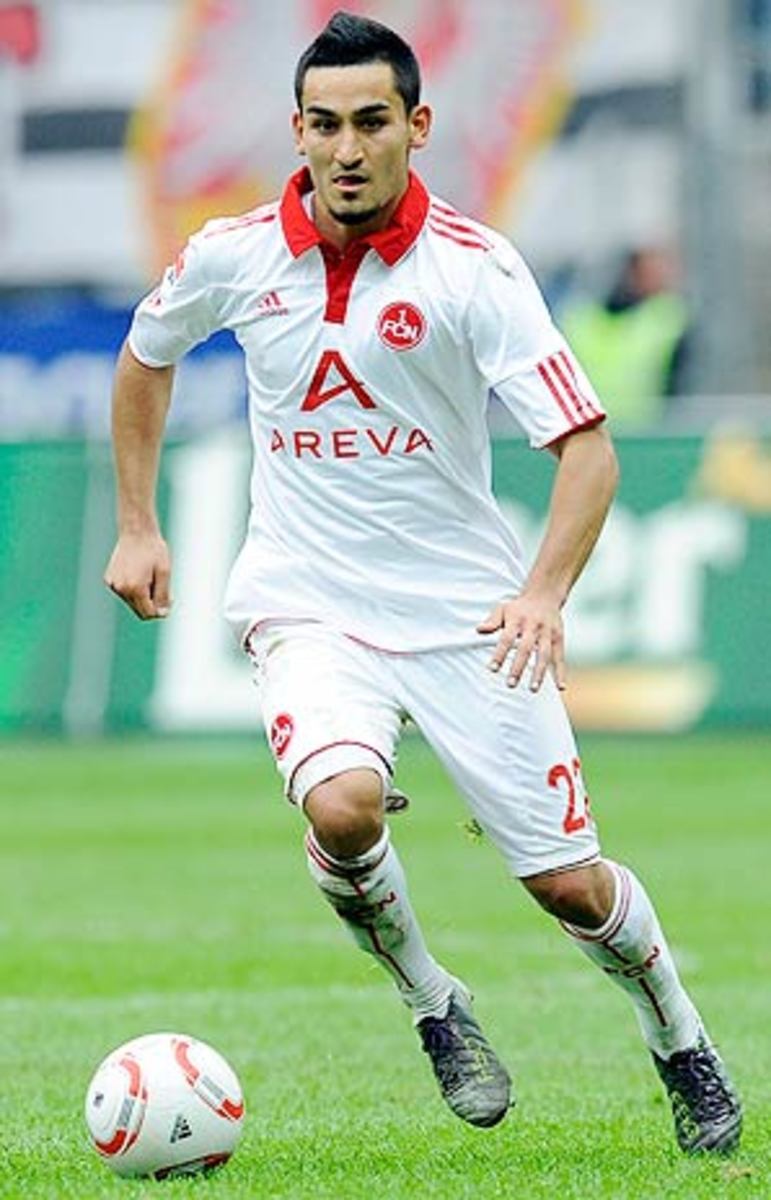Matchup between Germany and Turkey transcends football
The 19-year-old is with Germany's U-21 squad at the moment and scheduled to play against the Ukraine next Monday. But there was a suggestion that Guus Hiddink, the coach of the Turkish senior team, might nominate Gündogan for the European championship qualifier against Germany on Friday night, too. FIFA regulations stipulate that multinational players are free to choose the country they represent before they play their first competitive game with a team. In the end, the Turkish national team didn't nominate Gündogan, probably because it realized it had missed the boat. The youngster has apparently decided to stick with the German FA, alongside club colleague Mehmet Ekici, who also has dual citizenship.
The cases of Gündogan and Ekici demonstrate why Friday's match in Berlin is a little bigger than an ordinary international. Three million people with Turkish roots live in Germany. Many of them are excellent young footballers who attract the attention of two countries. Before German citizenship was reformed in 1999, Turkish players with a migratory background had little option but to suit up for their home country. But changes in the law, and the German FA's proactive approach, have resulted in the poaching of quite a few Turkish players in recent years, including Mesut Özil (Real Madrid) and Serdar Tasci (Stuttgart).
The issue is highly sensitive because it transcends football: The integration of immigrant communities into the German mainstream is a hotly debated topic. The German national team, which excelled at the World Cup, has shown that in professional football, at least, multiculturalism need not be problematic.
Dortmund's Nuri Sahin and the two Altintop twins, Hamit (FC Bayern) and Halil (Frankfurt), were born in Germany but have stuck with Turkey.
"I love Germany but my parents are Turkish and that's how I feel, too," Sahin told Frankfurter Allgemeine Zeitung.
Hamit Altintop explained that his decision was purely informed by emotions and a sense of connection to his home country.
"It's about the flag on your chest; it's about your heart," he said in an interview with Süddeutsche Zeitung. "Others might see it more as a career choice. Where are my prospects better, where can I achieve more?"
Hamit Altintop explicitly criticized Özil, a childhood friend from Gelsenkirchen, for choosing "the easier option."
Said Hamit: "As a German international, he has a different standing, a higher market value, a higher salary. If he had opted for Turkey, he wouldn't have played at the World Cup and wouldn't be playing for Real Madrid now."
The 27-year-old added that he respected Özil's decision but didn't agree with it.
"We need players to make a stand for the smaller country, too," Altinop said.
Germany's successful World Cup run has only increased the pull of Jogi Löw's team. At the official press conference on Wednesday, Özil insisted "there was never another option for [him]. I'm third-generation Turkish, I was born and grew up here [in Germany]. I'm proud to play for Germany."
The Turkish FA, however, has also redoubled its efforts to make sure young talents will want to play for it. Ravensburg-born Ömer Toprak, 21, was part of the German U-19 team that won the European championships in 2008, but he has since declared his allegiance to Turkey.
"He's an important player for us, and we're banking on him for the future," said Erdal Keser, the Turkish FA's representative in Europe.
Keser, 49, dismissed talk of fierce competition between the associations.
"We work in tandem, not against each other, because we need different players," Keser told Spox.com. "The Germans need playmakers and tricky players. We have many of those in Turkey. We, on the other hand, need the type that's ubiquitous in Germany: defenders and defensive midfielders. That's why we hardly step on each other's toes."
Relations are expected to be less cordial on Friday night, however, when at least half of the 80,000-strong crowd will be supporting the away team in the Olympiastadion. If previous occasions are anything to go by, the atmosphere will be reminiscent of a Süper League game in Istanbul. By staging the match in the German capital, where 200,000 people of Turkish origin live, the German FA has effectively given its opponent one extra home game.
"I was surprised that they chose Berlin," Hamit Altintop said. "There are so many Turks there. But it's a great idea, really. There'll be a buzz for a whole week. And I hope that [both sets of] supporters will make the match a party off the pitch. That, for me, is what integration is really about."





